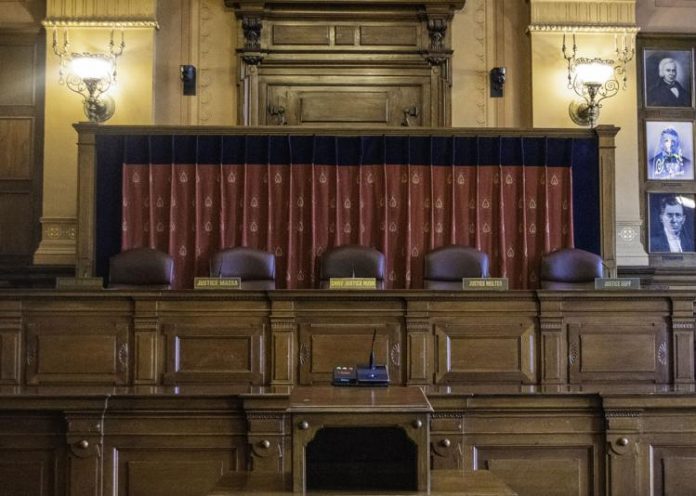New State Commercial Courts Are Open In 10 Indiana Counties
the staff of Statehouse files
(10 commercial courts around the state have been established: in Allen, Elkhart, Floyd, Hamilton, Lake, Madison, Marion, St. Joseph, Vanderburgh, and Vigo counties)
The Indiana Supreme Court hosted a reception Wednesday to provide information to Indiana businesses, lawyers, legislators, and other leaders about the benefits of the state’s commercial courts. The Indiana Supreme Court is the most historically original room in the Indiana Statehouse, according to Goben. The wooden chairs are original chairs from 1888. The court is 134 years old and the longest-running court in the country.
The state supreme court created the Indiana Commercial Court Pilot Project in June 2016, making Indiana one of 23 states with specialized commercial courts. Since then, 10 commercial courts around the state have been established: in Allen, Elkhart, Floyd, Hamilton, Lake, Madison, Marion, St. Joseph, Vanderburgh, and Vigo counties., “The specialized docket is designed to handle challenging business-to-business disputes in a timely, cost-effective, predictable, and fair manner,†said an Indiana Supreme Court press release. “About 1,500 cases have been or are currently being resolved through commercial courts.â€
The Office of Court Services website describes the purpose of commercial courts as a way to improve court efficiency, accuracy, and consistency by employing alternative dispute resolutions.
Civil cases are eligible, for example, if they are about the formation, dissolution, or liquidation of a business entity, according to the commercial court’s handbook.
But not all business-related cases may qualify to be heard in the commercial court. Some examples of cases that do not qualify include personal injury, wrongful death, consumer claims against a business, workers’ compensation or matters of eminent domain.
All parties in a lawsuit must agree to have the case tried in a commercial court; otherwise, they will be tried in civil court.





